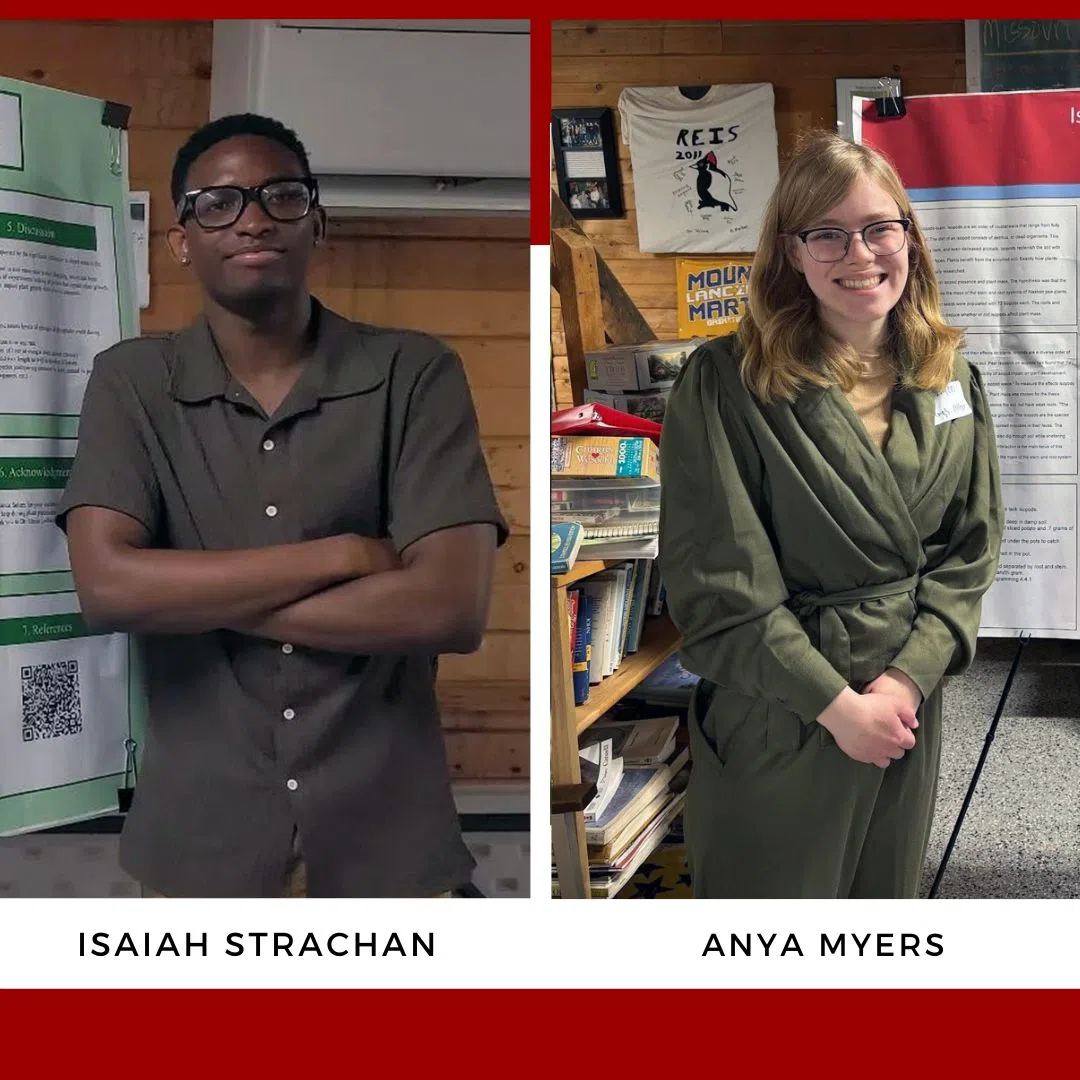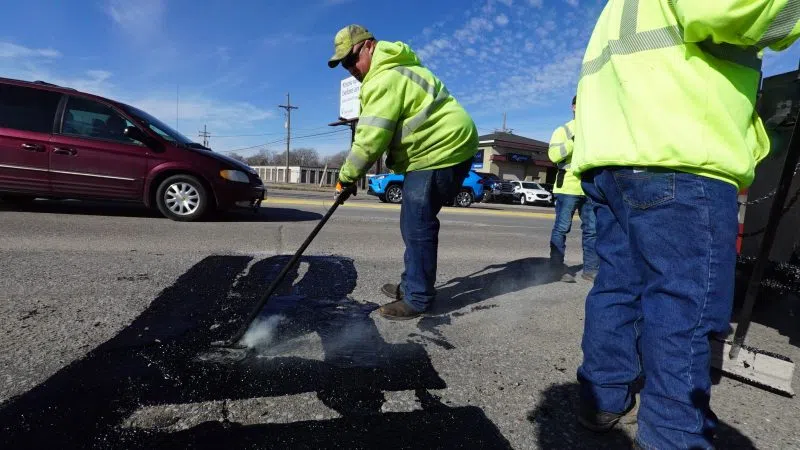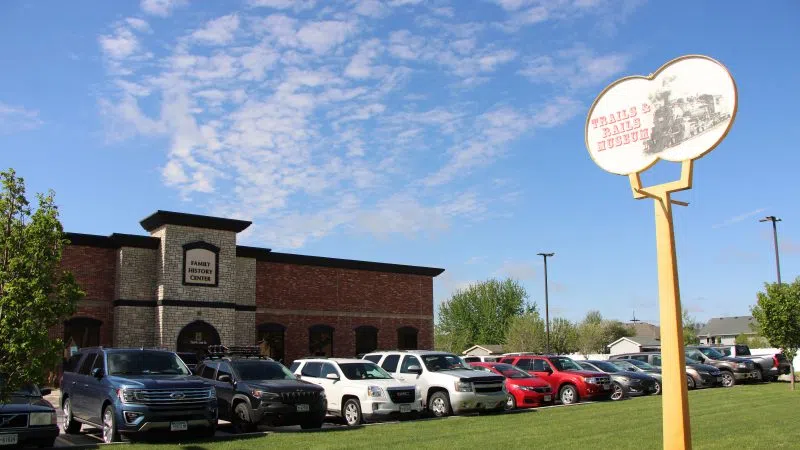
Hastings College, Courtesy
HASTINGS — At the Tri-Beta 2025 NC-2 District Convention earlier this semester, two Hastings College students showcased research projects that highlight the diverse applications of plant science.
One project explored how decaying matter affects plant growth in forensic contexts, while the second investigated the symbiotic relationships between isopods and pea plants.
The meeting, which was open to Tri-Beta chapters in Nebraska, Missouri, and Kansas, brought together students in the biology honors society to present posters or talks, see a keynote presentation and meet other students. The meeting took place at the Reis Biological Field Station outside of Steelville, Missouri, and was hosted by Saint Louis University.
Isaiah Strachan, a senior biology major from Nassau, the Bahamas, presented his research titled “The Effect of Decayed Animal Matter on
Plant Growth & Development,” which explores the role of forensic botany in criminal investigations. His study examined how plant groawth and seed emergence are influenced by decomposition processes, specifically using beef liver as a substitute for a buried cadaver.
By analyzing plant responses to decaying organic matter, Strachan aims to shed light on how vegetation can provide critical clues in forensic cases. His research employs statistical methods, such as independent samples t-tests, to quantify differences between plants exposed to the liver versus those without it. This work underscores the potential of plant science to enhance search-and-rescue efforts and improve forensic methodologies.
Anya Myers, a senior wildlife biology major from Overland Park, Kansas, presented “Isopod Interaction With Pea Plant Growth,” which focused on the relationship between isopods and plant development. Her experiment tested whether the presence of isopods could increase the mass of stem and root systems in Alaskan pea plants.
By introducing 12 isopods to each experimental group of pea plant seeds, Myers measured root and stem weights separately to assess their impact on overall plant mass. Her findings contribute to understanding symbiotic relationships between soil organisms and plants, offering insights into agricultural practices and ecological dynamics.
Myers and Strachan worked with Dr. Jason Carbaugh, assistant professor of biology, for their research. Dr. Amanda Solem, professor of biology, also attended the conference.
At the conference, the Hastings College chapter earned a first place Chapter History Award from the scrapbook produced by its historian Kaila Botts, a senior biology major from St. Paul, Nebraska. The chapter also won the “Travel Gavel,” which is calculated by the number of people who attend the conference times distance travelled per chapter.









